Laminate Veneers Teeth in Turkey
What are laminate veneers teeth in Turkey?
Laminate veneers are tiny, individually produced shells used to cover the front of teeth. They are usually attached to the teeth using a powerful dental glue and are normally constructed of porcelain or composite resin materials. Laminate veneers are frequently used as dental cosmetics to make teeth look better. Veneers can be used to conceal stains and discolouration that tooth whitening procedures are unable to eliminate. Broken or chipped teeth can have their appearance improved with the use of veneers. By hiding gaps or crooked teeth, veneers can give a smile a more equal and consistent appearance.
Which circumstances call for laminate veneers?
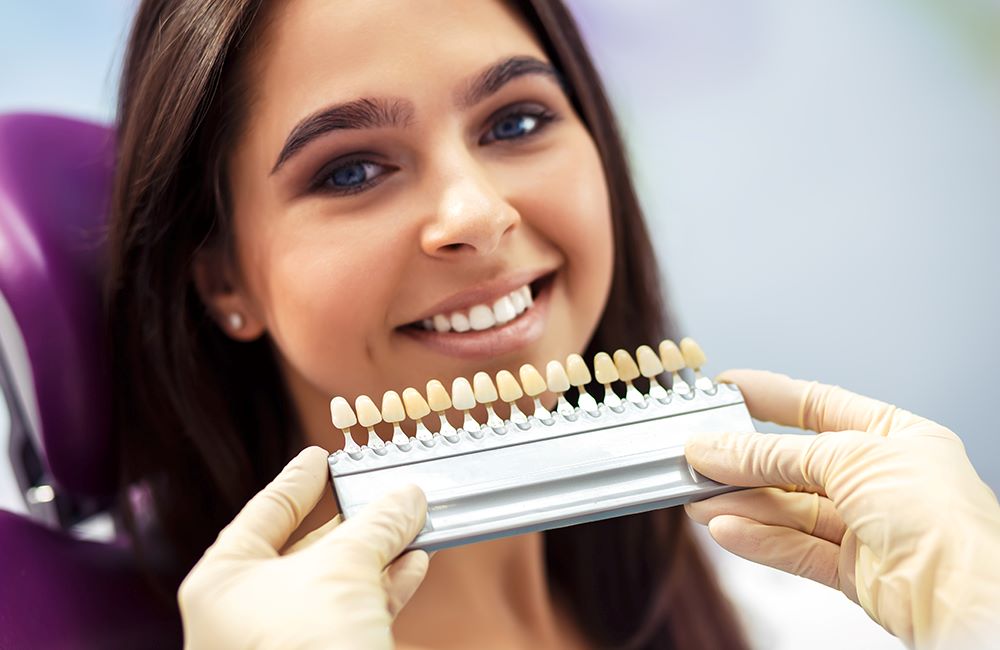
The following are scenarios in which laminate teeth cannot be applied or can only be applied with certain safeguards and treatments. The physiological process of the jawbone's growth is generally regarded to have ended when a person reaches the age of 18. Even if the patient is under the age of 18, the bones may be sufficiently grown in some rare circumstances. Naturally, the dentist's inspections and the operations to be carried out with specialized imaging equipment will be used to establish if the jawbone has developed or not.
- Circumstances in which laminate dental treatment is not appropriate due to tooth crowding
Making a laminated set of teeth becomes extremely challenging if there are both severe alignment issues and rotations of the teeth.
- Circumstances where adhesion won't be enough
If the teeth are exposed to too much flora, adhesion might not be complete. There might be other circumstances as well that limit adhesion. In these situations, alternate treatments should be used unless measures are taken.
- Severe clenching and grinding of the teeth
When teeth are clenched or ground, extreme pressure is put on them. Even healthy teeth and gums are susceptible to injury from this pressure. If your teeth are clenched or ground down, this thin veneer could crack.
- Teeth that have not fully developed or have not yet fully erupted
Teeth that have not finished developing have different sizes over time. Because of this, it is reasonable to anticipate that the tooth will mature completely.
- Existence of gum conditions
A damaged, crooked, or missing tooth may also result from gum diseases (such as tooth extraction). Because of this, laminate teeth shouldn't be used without first treating the gingiva.
- If the tooth's rear side needs to be laminated but is damaged
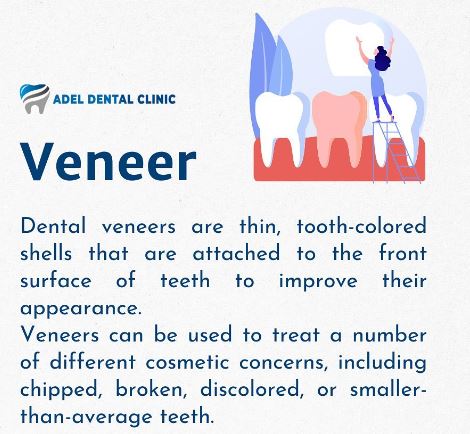
The front will already be worn out. The stability of the tooth depends on how robust the tooth's back is. The tooth will sustain additional damage as a result.
What are benefits and disadvantages of laminate veneers teeth?
Laminate veneers are a well-liked cosmetic dentistry treatment for whitened teeth. Before selecting if laminate veneers are the best solution for your particular situation, weigh the benefits and drawbacks of any dental procedure. The advantages and disadvantages of laminate veneers are as follows:
Benefits:
- Laminate veneers can make teeth look better by hiding stains, discolorations, and other flaws, resulting in a stunning and natural-looking outcome.
- Laminate veneers are made of sturdy, long-lasting materials that, with the right upkeep and care, can last for many years.
- A number of dental problems, such as chipping, cracking, or gaps between teeth, can be treated with laminate veneers.
- Laminated veneer placement is a minimally invasive technique with little to no recovery time.
- Why Because laminate veneers don't require as much dental preparation as other restorations, the natural tooth structure is preserved.
Disadvantages:
- The cost of laminate veneers may be more than that of other cosmetic dental procedures, which may be prohibitive for certain individuals.
- Following the procedure, some patients may suffer brief sensitivity or discomfort, which can be treated with over-the-counter painkillers.
- For laminate veneers to last a long time, good oral hygiene practices and routine dental exams are necessary.
- Laminate veneers are resistant to wear and fracture, although they might not be as robust as genuine teeth.
- The process of preparing teeth for laminate veneers is irreversible, which means the original teeth may undergo permanent change.
Laminate veneers are a flexible and long-lasting solution for enhancing the look of the teeth and generating a radiant, natural-looking smile. However, it is critical to thoroughly weigh the benefits and drawbacks before deciding whether laminate veneers are the best solution for your particular situation. You should also speak with a trained and experienced cosmetic dentist.
What should I do before laminate veneers?
There are certain significant dos and don'ts to take into account before purchasing laminate veneers. Here are a few suggestions:
You should do:
- Arrange a meeting with a prosthodontist or dentist with sufficient training in cosmetic dentistry. Your oral health will be assessed, your goals and expectations will be discussed, and if veneers are the best option for you, that will be decided.
- Maintain appropriate oral hygiene practices by brushing your teeth at least twice daily and flossing at least once a day. This makes sure that before obtaining veneers, your teeth and gums are in good condition.
- Before having veneers, think about making an appointment for a professional cleaning. This will ensure that your teeth are in the greatest possible condition prior to the insertion of the veneer by removing any plaque or tartar buildup.
- Communicate your objectives and desired outcome to your dentist in a clear and concise manner. Discuss your desired veneers' color, shape, and size as well as any unique concerns or preferences you may have.
- If you have any queries or worries concerning the veneer treatment, aftercare, or long-term maintenance, don't be afraid to ask your dentist. It's crucial to comprehend the procedure clearly.
You should not do:
- Avoid having any tooth whitening procedures done immediately before obtaining veneers. The color of your teeth may become uneven after placing veneers since they are color-matched to your natural teeth.
- It is advisable to get any necessary dental work done before receiving veneers, such as fillings or root canals. By doing this, you can make sure that your teeth are in good condition and that any restorations are in place before applying veneers.
- Let your dentist know if you have a habit of clenching or grinding your teeth (bruxism). Bruxism can place too much strain on veneers, potentially damaging them. To protect your veneers, your dentist could suggest wearing a nightguard or taking other preventative precautions.
- Avoid biting or chewing on hard items like ice, pens, or fingernails because doing so can harm the veneers. Although sturdy, veneers are not indestructible, thus it is crucial to handle them carefully.
- It's best to cut back on or stop using tobacco products and beverages like coffee, tea, and red wine that are known to significantly stain teeth. Although veneers are stain-resistant, prolonged exposure to stains may change how they look over time.
- Always remember to adhere to the particular instructions and suggestions your dentist has made for your unique situation. They will provide you thorough instructions on how to get ready for veneers and guarantee the greatest results for your smile makeover.
How is done laminate veneers treatment?
The process of getting laminate veneers typically involves several steps and requires multiple visits to the dentist. Here is a general overview of how the laminate veneers treatment is performed:
- The first step is to schedule a consultation with a dentist or prosthodontist experienced in cosmetic dentistry. During this visit, you will discuss your goals, concerns, and expectations regarding your smile. The dentist will perform a comprehensive examination of your teeth, gums, and overall oral health to determine if you are a suitable candidate for veneers.
- If veneers are deemed appropriate for you, the dentist will develop a customized treatment plan. This involves discussing the desired outcome, selecting the appropriate veneer material and shade, and considering factors such as tooth preparation and the number of veneers needed.
- In most cases, a minimal amount of tooth enamel (approximately 0.5 to 1.0 millimeters) is carefully removed from the front surface of the teeth receiving veneers. This step ensures that the veneers will fit properly and not appear bulky. Local anesthesia may be administered to ensure your comfort during the tooth preparation process.
- After tooth preparation, the dentist will take impressions of your teeth or use advanced digital scanning technology to create a precise replica of your teeth. These impressions or scans will serve as a model for the dental laboratory to fabricate your custom veneers.
- Depending on the extent of tooth preparation, temporary veneers may be placed to protect the prepared teeth and maintain aesthetics while the permanent veneers are being created in the dental laboratory. These temporary veneers are usually made from acrylic and are not as durable as the final restorations.
- The impressions or digital scans are sent to a dental laboratory, where skilled technicians will fabricate your custom veneers. This process typically takes a couple of weeks, during which the veneers are precisely crafted to match the desired shape, size, and color.
- Once the permanent veneers are ready, you will return to the dentist's office for the bonding procedure. The dentist will carefully place the veneers on your teeth, evaluating the fit, color, and overall appearance. Adjustments can be made as necessary before the final bonding.
- The dentist will clean, polish, and etch the tooth surface to create an optimal bonding surface. Dental adhesive is applied to the veneers, and they are carefully placed on the teeth. The dentist will ensure proper alignment and bite, making any final adjustments if needed. A special light is then used to activate the adhesive, causing it to harden and bond the veneers to the teeth.
- After the veneers are bonded, the dentist will make any final adjustments to ensure a comfortable bite and optimal aesthetics. Excess bonding material is removed, and the veneers are polished to achieve a natural and seamless appearance.
- The dentist may schedule a follow-up visit to evaluate the fit and function of the veneers. It is crucial to maintain regular dental check-ups, practice good oral hygiene, and follow any specific care instructions provided by your dentist to ensure the longevity and beauty of your veneers.
It's important to note that the above steps can vary depending on individual cases, the number of veneers required, and other factors specific to each patient. Your dentist will guide you through the process, providing personalized care and instructions based on your unique needs.
What should I do after laminate veneers treatments?
Laminated teeth's durability can be impacted by a variety of variables. The different factors that affect how long laminated teeth last are listed below.
- After laminated teeth have been positioned, teeth grinding may harm them. In order to protect the laminate veneer, people who clench and grind their teeth at night should use sleep guards.
- Placing and holding objects like pencils and buckles in the mouth can hurt both healthy teeth and laminated teeth. It is necessary to cease this behavior.
- Refrain from breaking apart meals with hard shells with your teeth. Eaten with additional caution, fruits with rough seeds should be avoided.
- Some people could pry open drink can lids with their teeth. However, it should be kept in mind that this procedure can damage laminated teeth, especially the anterior teeth.
- Even if it is firmly adhered, it should be noted that substances with adhesion and creep properties, such as chewing gum and putty, could occasionally damage the veneer and weaken it.
- Extremely acidic foods and beverages can damage the medical adhesive. Despite the fact that this scenario happens regularly, it is still crucial to use cautious.
- Make it a habit to clean your teeth twice daily with a gentle brush, to use dental floss, and to use mouthwash.
- It's important to maintain regular dental checkups every six months.
FREQUENTLY ASKED QUESTIONS
How much does laminate veneers cost in Turkey?
The price of laminate veneers for teeth varies in Turkey depending on a variety of variables, including the quantity of veneers required, the kind of material used, and the dentist's training and expertise. However, compared to many other nations, such as the US and the UK, the price of laminate veneers for teeth is typically lower in Turkey. Depending on the aforementioned variables, the average cost of laminate veneers for teeth in Turkey might range from $300 to $800 per tooth. This is substantially less expensive than veneers in other nations, where they can cost between $800 and $2,500 per tooth. The price of veneers may also include other costs like dental exams, X-rays, and temporary veneers, so it's crucial to keep that in mind. To receive an accurate price quote based on your unique case, it is advised to speak with multiple certified and competent cosmetic dentists in Turkey.
Does laminate veneers treatment hurt?
The process of getting laminate veneers is typically not considered painful. The majority of patients report minimal discomfort or sensitivity during the treatment. Here are some factors to consider regarding pain or discomfort during the laminate veneers treatment:
- Tooth Preparation: During the tooth preparation stage, a small amount of enamel is removed from the front surface of the teeth. This process is typically performed under local anesthesia, which numbs the area and helps minimize any potential discomfort. Some patients may experience mild sensitivity or soreness after the anesthesia wears off, but this discomfort is usually temporary and can be managed with over-the-counter pain relievers.
- Temporary Veneers: In some cases, temporary veneers may be placed on the prepared teeth while the permanent veneers are being fabricated in the dental laboratory. Temporary veneers are made from acrylic and are not as durable as the final restorations. They may cause some initial sensitivity or discomfort, but this is usually minimal and should subside once the permanent veneers are in place.
- Bonding Process: The bonding process involves the application of dental adhesive to the veneers and their placement onto the teeth. While this step does not typically cause pain, some individuals may experience slight sensitivity to the bonding materials or temporary discomfort due to the positioning of the veneers. Any discomfort should be mild and short-lived.
- Sensitivity: After the placement of laminate veneers, some patients may experience increased tooth sensitivity to hot or cold temperatures. This sensitivity is generally temporary and should resolve within a few weeks as the teeth adjust to the presence of the veneers.
It's important to communicate with your dentist throughout the treatment process. They can address any concerns you may have and take appropriate measures to ensure your comfort, such as administering local anesthesia or providing recommendations for managing sensitivity or discomfort. Every individual's pain threshold and experience may vary, so it's important to remember that discomfort is subjective. Most patients find the process of getting laminate veneers to be well-tolerated and experience minimal pain or discomfort.
Are laminate veneers worth it?
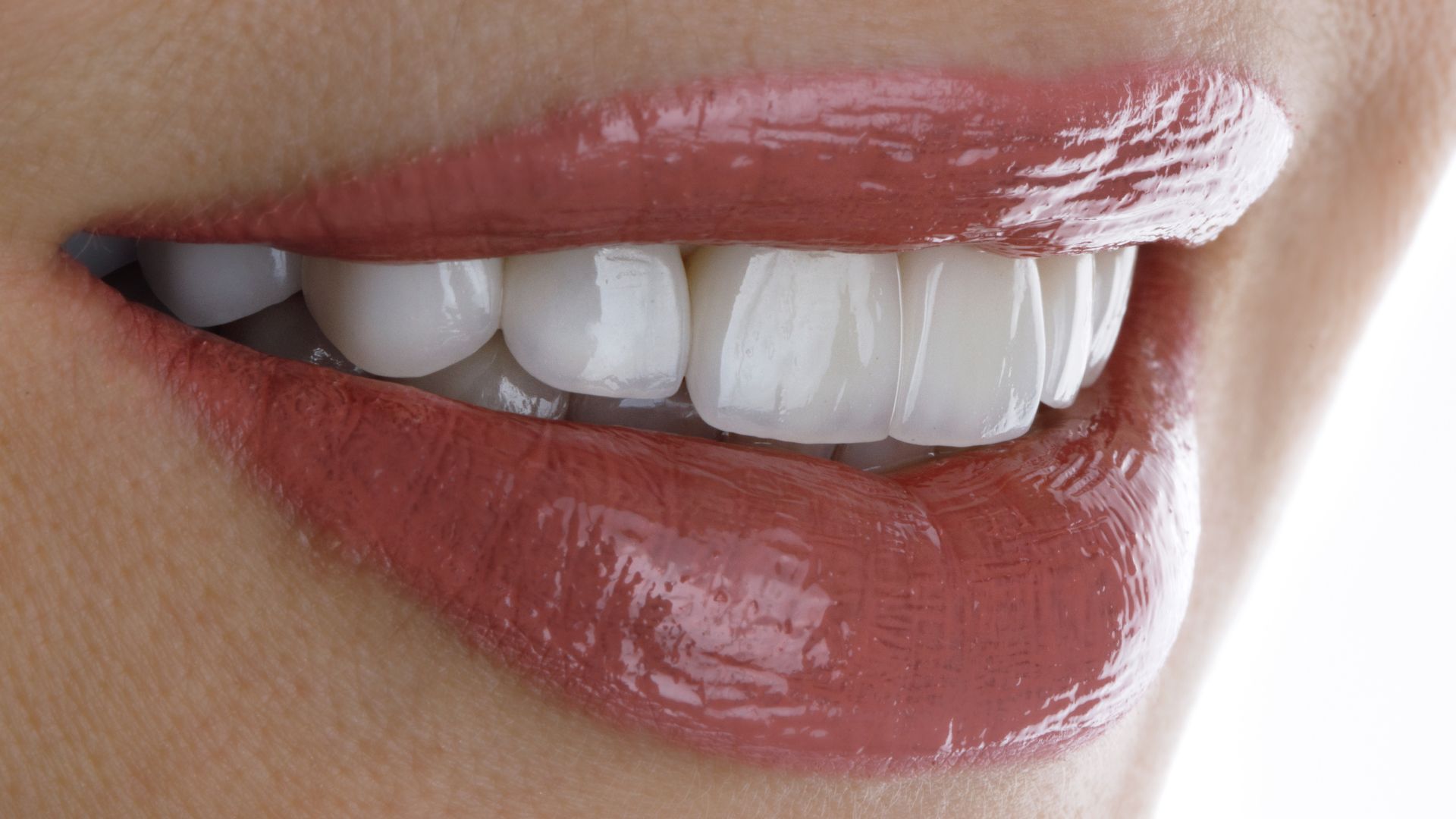
The value of the laminate veneers operation for your teeth will depend on your particular situation, objectives, and financial situation. By hiding stains, discolouration, and other flaws in the teeth, laminate veneers can produce a stunning and natural-looking result, giving the smile a more uniform appearance. They can also be applied to other dental problems including gaps or chipped teeth. However, it's crucial to carefully weigh the benefits and drawbacks of laminate veneers and speak with a skilled cosmetic dentist to decide if they're the best solution for your particular situation. Furthermore, even if laminate veneer prices may be lower in Turkey than in other nations, it's still vital to take other costs like travel and lodging into account when calculating the whole cost. For those seeking to enhance the look of their teeth and attain a more attractive and confident smile, laminate veneers may be a wise investment; nevertheless, before making a choice, it is crucial to thoroughly weigh the potential advantages and expenses.
How long do laminate veneers last?
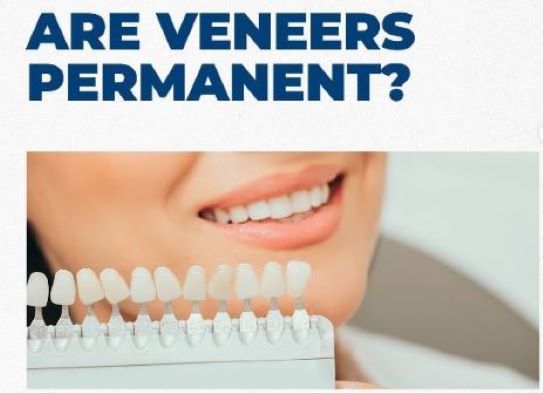
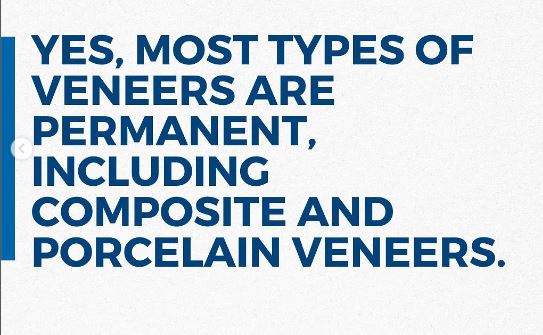


Laminate veneers may eventually need to be replaced or maintained, therefore they are not thought of as permanent. Despite the fact that laminate veneers are made to endure a long time and are resistant to wear They are nevertheless susceptible to damage and can eventually become worn, chipped, or discolored. Varying factors, including oral care routines, habits such teeth grinding or clenching, and the quality of the materials used, can affect how long laminate veneers last.
Laminate veneers typically last between 10 and 20 years, although they can need to be replaced sooner if they sustain damage or lose the ideal aesthetic appeal. Laminate veneers can last a long time with routine dental cleanings and maintenance. To assist extend the life of your veneers, it's crucial to maintain proper oral hygiene habits, such as consistent brushing, flossing, and seeing your dentist for professional cleanings and inspections. It is advisable to speak with a skilled dentist or dental professional who can offer specialized advise based on your particular scenario if you are thinking about having laminate veneers or have specific concerns about their durability or lifespan.permanent solution, they can provide a long-lasting and aesthetically pleasing result with proper care and maintenance.
How many sessions does the laminated teeth veneer process take?
The number of sessions required for laminate veneers teeth procedure can depend on several factors, such as the number of veneers needed and the complexity of the case. However, the entire process typically takes two to three visits to the dentist. During the first visit, the dentist will examine your teeth, discuss your goals and concerns, and determine if laminate veneers are the right option for your individual case. If veneers are recommended, the dentist will prepare the teeth by removing a small amount of enamel from the surface of the teeth to make room for the veneers. The dentist will also take an impression of the teeth to create custom-fit veneers that match the size and shape of the surrounding teeth. Temporary veneers may be placed to protect the prepared teeth while the permanent veneers are being fabricated. During the second visit, the dentist will place the permanent veneers on the prepared teeth using a strong dental adhesive. The veneers will be carefully shaped and polished to create a natural-looking and beautiful result.
In some cases, a third visit may be required to ensure that the veneers are properly functioning and fitting. The dentist may also provide aftercare instructions and recommendations for maintaining the veneers. While the number of sessions required for laminate veneers teeth procedure can vary, the entire process typically takes two to three visits to the dentist.
Can laminate veneers teeth fall?
It is rare for a properly adhered laminate veneer to fall off, as the dental adhesive used to bond the veneer to the tooth is very strong and durable. However, there is a small chance that a veneer may become dislodged or fall off due to various factors, such as trauma or decay underneath the veneer. If a laminate veneer falls off or becomes dislodged, it is important to contact your dentist as soon as possible. In some cases, the veneer may be able to be re-bonded to the tooth if it is undamaged and the underlying tooth is healthy. However, in some cases, a new veneer may need to be fabricated to replace the damaged veneer. To reduce the risk of a laminate veneer falling off, it is important to maintain good oral hygiene habits, avoid habits that can damage the veneers, such as biting on hard objects, and attend regular dental check-ups to ensure that the veneers and underlying teeth are healthy.
Does insurance cover the laminate veneers teeth?
Insurance coverage for laminate veneers can vary depending on the specific terms and coverage of your dental insurance plan. Here are some important points to consider regarding insurance coverage for laminate veneers:
- Dental insurance plans typically classify procedures as either cosmetic or restorative. Laminate veneers are primarily considered a cosmetic procedure, as they are primarily done to improve the appearance of the teeth rather than to address a functional or health concern. Insurance coverage for cosmetic procedures is generally limited or may not be covered at all.
- Before undergoing any dental procedure, including laminate veneers, it's important to check with your insurance provider to determine if pre-authorization is required. This involves submitting a treatment plan to the insurance company for approval and confirmation of coverage.
- Even if your dental insurance plan covers cosmetic procedures, there may be limitations or restrictions on the extent of coverage. For example, insurance plans may have a waiting period before covering cosmetic procedures or may only cover a portion of the cost. It's important to review your plan's coverage details to understand any limitations or exclusions.
- : In some cases, dental insurance plans may provide coverage for alternative treatments that are deemed medically necessary. For instance, if the laminate veneers are required to restore damaged or decayed teeth, your insurance may cover the cost under restorative procedures. However, if the primary purpose is solely cosmetic, coverage may be limited.
- It's important to be aware that even if your dental insurance plan provides coverage for laminate veneers, you may still have out-of-pocket expenses. This can include deductibles, co-pays, or costs associated with any additional procedures or treatments required alongside the veneers.
To understand the specific coverage details of your dental insurance plan for laminate veneers, it is recommended to contact your insurance provider directly. They can provide you with accurate information regarding the extent of coverage, any limitations or exclusions, and an estimation of your out-of-pocket costs. Additionally, consulting with your dentist or a dental professional can help you navigate the insurance process and provide guidance on available treatment options and costs.
When will I call dentist after laminate veneers treatment?
It's crucial to adhere to your dentist's recommendations for post-treatment care and follow-up consultations after receiving laminate veneers treatment. Typically, a week or two after the implantation of the veneers is the standard time frame for scheduling a follow-up appointment with your dentist. It's crucial to remember that the precise timing may change depending on your unique situation and your dentist's advice.
Your dentist will examine the veneers' placement, evaluate your dental health, and address any concerns or problems you may have at the follow-up appointment. They'll make sure the veneers are appropriately positioned, are operating normally, and satisfy your aesthetic requirements. During this appointment, the dentist can make any alterations or revisions required to improve the veneers' fit, comfort, and appearance.
In addition to the predetermined follow-up appointment, it's crucial to get in touch with your dentist right away if you have any unanticipated problems or worries after having laminate veneers installed. This can apply to any issues with the veneers themselves, including as discomfort or sensitivity.
The longevity and general health of your laminate veneers depend on you practicing appropriate oral hygiene habits, such as routine brushing, flossing, and dental checkups and cleanings. To ensure the longevity and ideal appearance of your veneers, your dentist will provide you instructions on how to properly maintain them.
